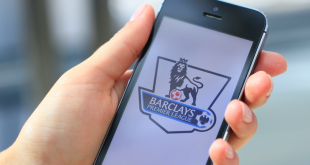
Last month, the English Premier League (EPL) sold the rights to broadcast its matches between 2016 and 2019 to Sky Sports and BT Sport for a record-breaking £5.14Bn ($7.92Bn).
According to research undertaken by Gaming Economics, betting on the EPL is fast overtaking horseracing as the most popular sporting event of choice by UK punters, with in-running betting (IRB) taking up to 80% of all football turnover.
IRB has always relied heavily on live TV pictures, and the increase in the number, and frequency, of EPL games shown live has been one of the important catalysts of the impressive growth of in-play betting seen over the past ten years.
When the English Premier League started in 1992, barely two live games were broadcast on a weekly basis. This has since risen by almost 200%, with 168 games scheduled from 2016, and up to 5-days-a-week with the new Friday-night slot being added from next year.
However, some observers believe Sky, in particular, is now locked into a cycle of aggressive bidding and rights-inflation; they now have football deals to conclude in such vital markets as Germany (2016) and Italy (2017) before the EPL bidding starts all over again in 2018. No wonder Sky’s share price fell 5% on last week’s news…
So whilst UK bookmakers will be rejoicing in the domestic increase in EPL games from next season, this might be a short-lived celebration.
With the seemingly never-ending increase in the cost of TV sports rights, when will the broadcasters come looking for their bit of the betting bonanza?
___________________________
Lee Richardson – CEO – Gaming Economics










